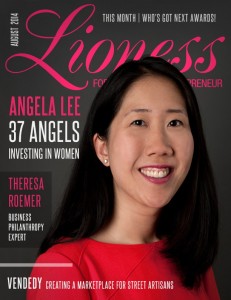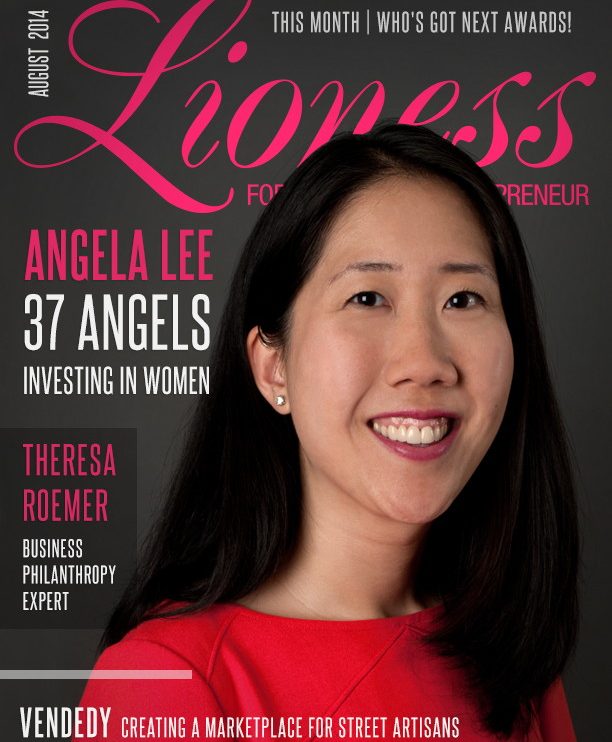 When Angela Lee became an angel investor about six years ago she found she wanted to do it in a more organized fashion. As an educator, investor and entrepreneur who has started four companies herself, Lee brought to the table a concentrated view on how she would like an angel network to be; focused on education and getting women into the investment field.
When Angela Lee became an angel investor about six years ago she found she wanted to do it in a more organized fashion. As an educator, investor and entrepreneur who has started four companies herself, Lee brought to the table a concentrated view on how she would like an angel network to be; focused on education and getting women into the investment field.
Lee, executive director of Teaching Excellence at Columbia Business School where she also teaches the topics of leadership, innovation, and strategy, founded her own angel network of women angel investors who provide capital for business start ups in exchange for ownership, equity or debt, called 37 Angels, named so for the percentage needed for women investors to reach 50 percent.
“The first few members were a part of my personal network. There was no marketing,” Lee recalled. “I built it for me and our personal friends; it has not been hard to find investors.”
Perhaps the ease of finding female investors may come from a great need amongst women to find a network for them, a network geared towards women investors that focus on education and training. Perhaps the market is just changing, either way the women are out there and organizations like 37 Angels are tapping into it.
“I am fiercely passionate about education. I wanted it to be at the core,” Lee said.
Offering unique training courses for new angel investors, Lee and her network provide valuable resources and mentors to those who perhaps without the knowledge would be too timid to get into the investment field. With a strategy of learn, do and meet, trainees are put through a boot camp, matched with mentors and then committed to an investment.
While 37 Angels focuses on women investors, investments made are not just into women-led companies. The field is naturally blended, with most investments in health care and media technology. On average, in a year, 37 Angels will go through 2,000 investment pitches. With a fine-tuned method of vetting, they quickly discover which ones are not appropriate for them and get down to 400-500 that will go through meetings in which investors will get to know the people behind the companies and spend time with them. Of that, about 100 will make it to screening and 50 will pitch to their network of about 60 investors.
It is this process that makes 37 Angels most proud. Without discrediting the many networks of angel investors out there, 37 Angels is the only network that guarantees a timely decision process for entrepreneurs.
“The average timing is five months. Ours is four weeks,” Lee said, noting that the method is simple. “We have a goal and organize to that.”
While they may at times say no, they do so quickly and do their best to add value to their decision. The fact that 2/3 of their website testimonials come from entrepreneurs that were not funded speaks volumes to their process and manner of business.
At the start of 37 Angels, the percentage of women investors was 13 percent; today it is between 17 and 18 percent and growing.
“We’re clearly not responsible for that growth but we’re very happy about it. Women are having a bit of a moment right now,” Lee said.
When approached with how to get more women into the field, Lee is quick to turn to education and discussion.
“We need more talking about failure. You’re not always crushing it,” Lee said. “If you feel alone you’re more likely to quit.”
Though ever reaching for that 50 percent, Lee’s motivation is not just a numbers game.
“The goal for right now is I want to get the numbers up in a way that women get credibility in their space,” said Lee, who doesn’t want a diversified market to be just a need for a woman to satisfy a statistic but the need for an asset that just so happens to be a woman. “I want to be known as an education tech investor, not just a number.
“I always tell women when they get together to come in with a position of strength, not in a position of anger,” Lee continued, noting that she fears that at times women can mistake their position in both the business and investment world as one of weakness, focusing too much on the fact they may need to have to prove themselves.
Good friend Anjali Kumar, general counsel at Warby Parker, once made a comment that has always stuck with Lee regarding why certain women in business are asked to speak at conferences or make special appearances: “The first time you’re asked it’s because you’re a woman. The second time is because you’re awesome.”
Believing that wholeheartedly, Lee said, “Recognize realities but accept them and recognize it’s OK.”
What’s the moral of the story? Regardless of gender, race, age, religion, even height or weight, be awesome. Be awesome in your strengths; invest in that!
Tips from Angela:
In the investment world, Lee’s philosophy is practicing due diligence while recognizing that luck also plays a huge role. Luck and talking to a lot of people, but here are few key topics Lee points out:
Key Components to look for when investing:
Team, Market & Product. Look in that line of priority, the product will change, the founding team will not. Get to know the team and the people involved in the product.
Key Components to look for when pitching:
Know what you’re good at and start with what you need, what the most difficult pieces are. Know what you need from a hiring perspective and know how to speak to your audience.
What not to do when pitching:
Do not throw a business plan down and say “help!” Help your investor help you. Do the research and know what you need. Come with an introduction of yourself and your business plan. Who do you need to meet? Tell your investor how they can help you, don’t expect them to put it together for you.
Don’t pitch the idea or product. Instead talk about why this is the right team and how you’re attacking the market.
When to hear ‘No’:
Always test to your marketplace using resources to launch and test your product or idea. If the marketplace says “no” you should listen.
Be nimble and listen with openness. Execute with diligence, listen to everyone, but really listen to your customers.
Additional Resources:
37Angels.com provides a resources tab that can be found at the top right corner of its website linking a wealth of additional information including a glossary helpful to any novice investor or entrepreneur.
Listed is a calendar of events, links to helpful sites for entrepreneurs to test and launch ideas/products, informative blogs and links for sites specifically for women entrepreneurs.
In keeping with the passion for education that Lee has, 37 Angels and its website believe strongly in learning and providing the tools to do so.






Add Comment